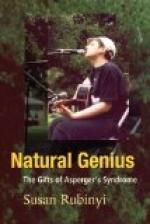His aching flesh, his fevered
eyes
His piteous stomach,
craving meat;
His features, nipt of tenderness,
And most, his
little frozen feet.
Oft, by my fireside’s
ruddy glow,
I think, how in
some noisome den,
Bred up with curses and with
blows,
He lives unblest
of gods or men.
I cannot snatch him from his
fate,
The tribute of
my doubting mind
Drops, torch-like, in the
abyss of ill,
That skirts the
ways of humankind.
But, as my heart’s desire
would leap
To help him, recognized
of none,
I thank the God who left him
this,
For many a precious
right foregone.
My mother, whom I scarcely
knew,
Bequeathed this
bond of love to me;
The heart parental thrills
for all
The children of
humanity.
EARTH’S WITNESS.
BY ALICE B. HAVEN.
That Poet wrongs his soul,
whose dreary cry
Calls “winds”
and “waves,” and “burning stars of
night”
To bring our darkness
nature’s clearer light
On that just sentence, “Thou
shalt surely die;”
To track the spirit as it
leaves its clay
To bring back
surety of its future home,
Or echo of the
voice that calleth “come,”
To prove that it is borne
to perfect day.
Say rather, “winds,”
who heard the Master speak,
And “waves,”
who by His voice transfixed were stayed,
And stars that
lighted Christ’s deep shade—
Your confirmation of our trust
we seek.
Ye know how shadowy
Death’s dreary prison,
Because ye witnessed
Christ our life, up risen.
THE WILLOWS, 1858.
THE NEW ENGLAND THANKSGIVING.
BY THE REV. HENRY W. BELLOWS, D.D.
When cellar and barn and storehouse were filled with food for the coming winter, our pious New England forefathers used their first common leisure to make public and joyful acknowledgment of their blessings to the God of sunshine and of rain; to Him, who clothes the valleys with corn, and the hills with flocks. Almost universally, they placed the meeting-houses, where these thanks were rendered, on the hill-top commanding the widest view of the fields from which their prosperity sprung, and nearest to the sky, whence their blessings came. Their modest homes were sheltered from the winds by the barns that held their wealth and overshadowed their low dwellings. The earth was precious in their eyes, as the source of their living. They could spare no fertile or sheltered spot, even for the burial-ground, but economically laid it out in the sand, or on the bleak hill-side; while they threw away no fencing on the house of God, but jealously preserved that costly distinction for their arable lands and orchards. They were farmers; and it




